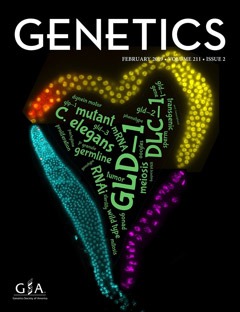GSA Journals Peer Review Training Program
Get real-world peer review training and experience by participating in this innovative program!
 Peer reviewers are vital to science; yet, early career scientists in our field rarely receive formal training to be effective reviewers. Proper training allows them to develop skills central to their success including understanding the expectations of peer reviewers and editors, critical thinking, evaluating research, and providing constructive scientific feedback.
Peer reviewers are vital to science; yet, early career scientists in our field rarely receive formal training to be effective reviewers. Proper training allows them to develop skills central to their success including understanding the expectations of peer reviewers and editors, critical thinking, evaluating research, and providing constructive scientific feedback.
GSA is addressing this gap in training by providing early career members with real-world peer review experience through online training and advice from GENETICS and G3: Genes|Genomes|Genetics editors. Participants will become reviewers for manuscripts submitted to the GSA Journals. Early career scientists from anywhere in the world are encouraged to apply. We particularly welcome applications from members who lack opportunities to receive peer review training in their home labs or departments.
Program Description
This program is conducted online via Zoom; no travel is required. Participants learn about scientific publishing and peer review, dissecting a manuscript, and conducting a practice manuscript review through approximately four hours of virtual training. After completing the training, participants will take part in the peer review process at GENETICS and G3, reviewing real manuscripts that match their expertise for a period of two years. Their reviews will be used in the editorial process; participants will receive the decision letter and the other reviews, and editors may also provide them with feedback.
Program Timeline
| Application open | August 8, 2025–September 30, 2025 |
| Applicants notified of decision | December 2025 |
| Orientation session | January/February 2026 |
| Training session | February 2026 |
| Participants review GSA Journals manuscripts | March 2026–January 2028 |
| Program ends | January 2028 |
Eligibility
Senior graduate students, postdocs, and early career scientists within seven years of having earned their PhD are invited to apply. Applicants should have published at least one peer-reviewed manuscript, preferably as the first author. Some peer review experience is preferred, though not required. Selected applicants will be asked to maintain an active GSA membership for the duration of the program though it is not required at the time of application.
Selection Process
We seek a range of applicants, including early career scientists in academia, biotech, publishing, and non-profit careers. Some successful applicants may have significant experience in reviewing manuscripts whereas others will not. All participants will have previously published their own research in a peer reviewed journal.
Selections will be made by a committee composed of GSA Journals editors and staff. Applicants will be notified of their acceptance decision during December 2024.
Application Process
Applicants should submit the following materials via the application form (linked at the top of the page when applications are open).
- A current CV, including publication list
- An explanation of why you are interested in the program (maximum 250 words)
- A short description of prior experience in scientific reviewing (maximum 250 words)
- An abstract from one of your publications
Indicate which journal section(s) match your area of expertise. For the 2025 application cycle, the program is open for applications to the following sections:
- Cellular Genetics
- Computational Resources, Software and Databases
- Empirical Population and Evolutionary Genetics
- Experimental Technologies and Resources
- Gene Expression
- Genetics of Complex Traits
- Genome Integrity & Transmission
- Genome & Systems Biology
- Molecular Genetics of Development
- Neurogenetics & Behavior
- Statistical Genetics & Genomics
- Theoretical Population Genetics
Questions about the program or application? Email: peerreview@genetics-gsa.org
Program Reviews
Learn more about career development at GSA
Early Career Leadership and Professional Development Program
Students, postdocs, and other early career scientists (ECS) are the future of GSA and the genetics community. To help them strengthen their voice, GSA developed the Early Career Leadership Program, which provides an array of opportunities for early career scientists to develop skills, gain experience, network, and produce concrete deliverables to demonstrate their abilities.
Starter Culture Microgrant Program
GSA offers members up to $2,000 in funding for projects that will benefit the genetics community, allowing the Society to be more responsive to member needs and changing contexts. Additionally, this resource allows critical projects to have broad and far-reaching intellectual, practical, and geographic impacts, not limited to institutional events in a single location, as well as benefit students and faculty.



